| Weight | 1kg |
|---|
Only logged in customers who have purchased this product may leave a review.
Ewedu- per pack (Subscriber price only)
Description
Ewedu (Corchorus olitorius), also known as jute leaves, is a slimy, green leafy vegetable that is a staple in Yoruba cuisine. When cooked, it has a slippery texture, similar to okra, which makes it easy to swallow. The leaves are usually blended or whisked after boiling to achieve a smooth, viscous consistency. Ewedu is prized for its unique taste and texture, as well as its rich nutritional value.
Sources
Primarily cultivated in the southwestern states of Nigeria but also grown in other regions with warm, moist soil. It is commonly sold fresh in open markets and can also be home-grown in backyard gardens.
Health Benefits
-
Rich in vitamins A, C, and E, which promote good eyesight and healthy skin.
-
Supports digestion due to its mucilaginous (slimy) texture.
-
Boosts immunity and helps fight infections.
-
Promotes bone and teeth health with its high calcium content.
-
Aids postpartum recovery in women.
Common soups or dishes you can use it for
-
Ewedu soup (often served with amala and gbegiri)
-
Ewedu with stew and assorted meats
-
Mixed vegetable soups with okra
-
Ewedu with melon (egusi) combination soups
Utazi -per pack(Subscriber price only)
Description
Utazi, scientifically known as Gongronema latifolium, is a slightly bitter-sweet, aromatic leaf used both as a spice and vegetable in Nigerian cuisine. It is native to West Africa and is highly valued for its medicinal properties as well as its flavor-enhancing qualities in soups and traditional dishes.
Sources
Enugu, Abia, Anambra, and Ebonyi.
Health benefits
-
Aids digestion – helps reduce bloating and improve bowel movement.
-
Supports blood sugar regulation – beneficial for people with diabetes.
-
Rich in antioxidants – helps protect the body from oxidative stress.
-
Boosts immunity – contains vitamins and minerals that strengthen the immune system.
-
Improves appetite – often used in traditional medicine to stimulate hunger.
Common soups you can use it for
-
Nsala Soup (White Soup)
-
Oha Soup
-
Bitterleaf Soup (Ofe Onugbu)
-
Pepper Soup
-
Yam Pepper Soup with Fish or Meat
MoinMoin Leaves – per pack -(Subscriber price only)
Description
Moi Moi leaf comes from the plant Thaumatococcus daniellii, known for its broad, flexible, and aromatic leaves. These leaves are not eaten but are used as natural wrappers for steaming dishes like Moi Moi (bean pudding) and some local rice delicacies. Cooking with Moi Moi leaves gives food a distinct earthy aroma and flavor compared to using nylon or foil.
Sources
Oyo, Ogun, Ondo, and Ekiti, as well as parts of the South-South.
Health benefits (indirect — since the leaves are not consumed directly)
-
Adds a natural aroma to food without artificial flavoring.
-
Eco-friendly and biodegradable compared to synthetic wraps.
-
Helps retain food nutrients during steaming due to its natural sealing effect.
-
The plant itself has medicinal uses in traditional medicine (e.g., the fruits are used as natural sweeteners).
Common soups or dishes you can use it for
-
Moi Moi (bean pudding)
-
Ekuru (steamed mashed beans)
-
Some local steamed rice dishes

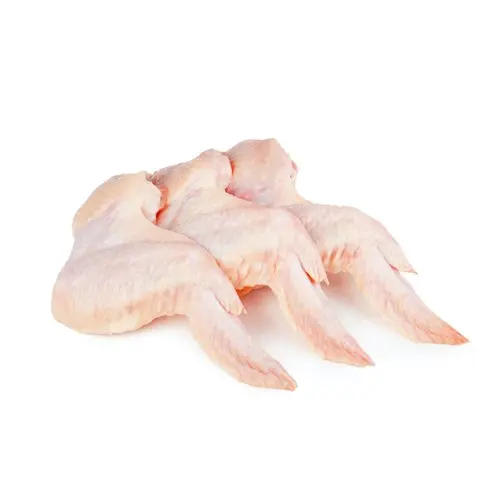

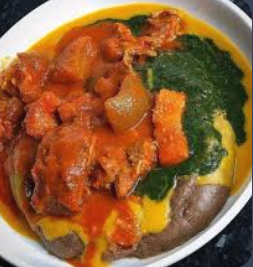
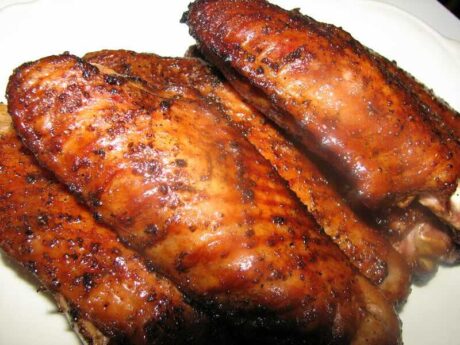

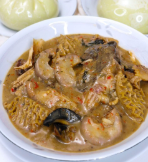
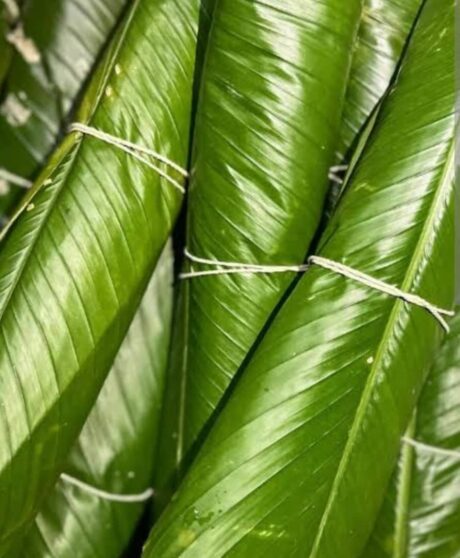
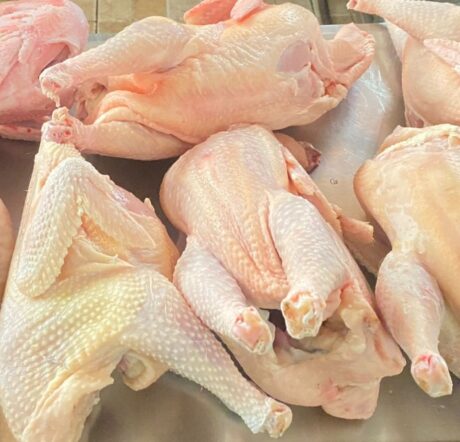
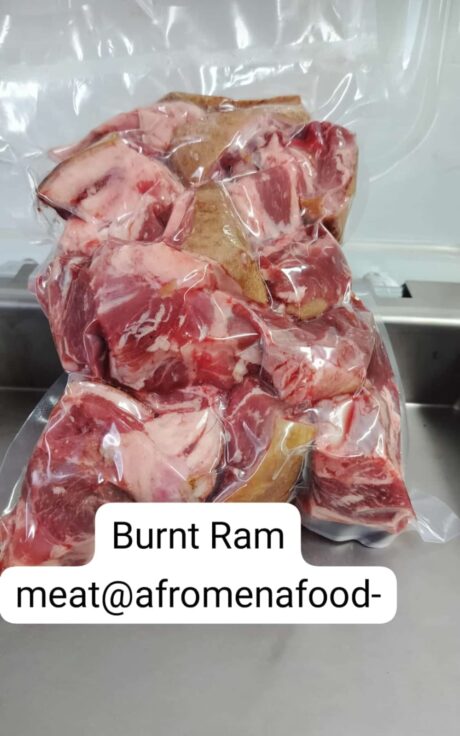


Reviews
There are no reviews yet.